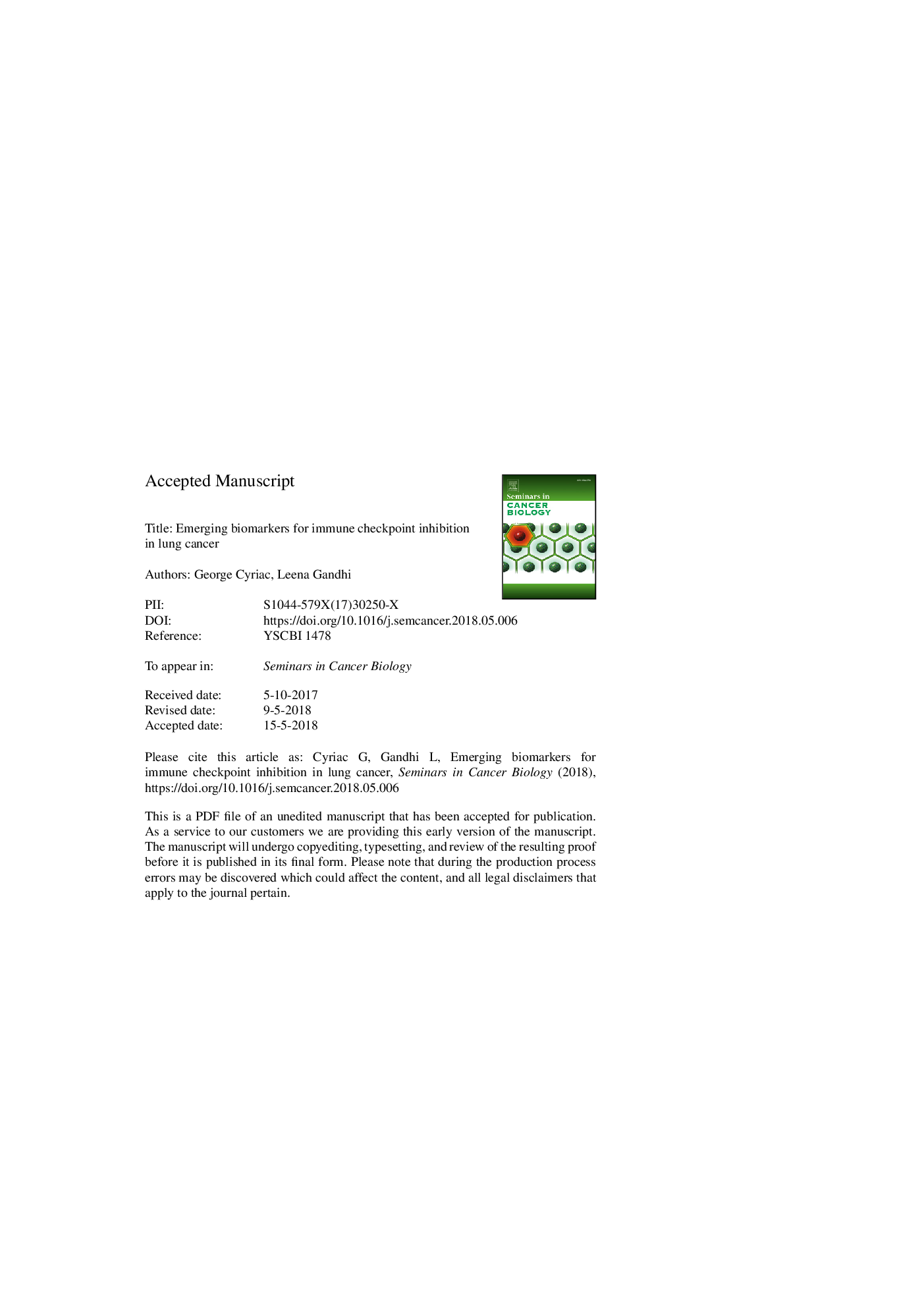| Article ID | Journal | Published Year | Pages | File Type |
|---|---|---|---|---|
| 10157007 | Seminars in Cancer Biology | 2018 | 20 Pages |
Abstract
Immune checkpoint inhibition with anti-PD-1 therapy has been notably successful in non-small cell lung cancer (NSCLC) and changed standard practice in multiple settings. However, despite some durable benefits seen, the majority of unselected patients with NSCLC fail to respond to checkpoint inhibitors. Patient selection is crucial and will become even more important in the development of combination therapies with immune checkpoint inhibitors. PD-L1 expression by immunohistochemistry (IHC) has emerged as the most commonly used clinical biomarker of response and overall tumor mutational burden (TMB) is being explored as a clinical biomarker. However, both are hampered by being imperfect predictors of response and both can be dynamic during the course of illness. In this review, we will discuss the development of PD-L1 expression as a biomarker as well as the ongoing emergence of other genomic and proteomic markers that can help refine our use of immunotherapies to maximize benefit in the most patients.
Keywords
Related Topics
Life Sciences
Biochemistry, Genetics and Molecular Biology
Biochemistry
Authors
George Cyriac, Leena Gandhi,
